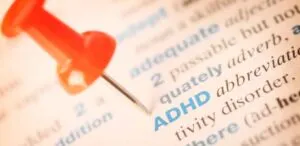Personality Disorder
Before we can describe personality disorder, we must first define personality. Personality is a set of characteristics or qualities that define an individual’s distinct character. A person’s manner of thinking, feeling, attitude, and conduct distinguishes them from others. Experiences, environment, and genetic features all have an impact on an individual’s personality. A person’s personality often doesn’t change over time.
Personality disorders are mental health problems with long, all-encompassing, disturbing patterns of thinking, behavior, mood, and interpersonal relationships. The pattern of experience and conduct usually begins in late adolescence or early adulthood.

What are the Types of Personality Disorders?
There are 10 specific types of personality disorders which the Diagnostic and Statistical Manual of Mental Disorders (DSM-5) groups into three major clusters (categories).
Cluster A Personality Disorders
- Paranoid personality disorder: A tendency to be suspicious of others and to perceive them as mean. The main feature of this neurological disease is paranoia, which is a constant mistrust and suspicion of people for no apparent cause. People with paranoid personality disorder frequently believe that others will harm or deceive them, hence they do not trust in or become close to them.
- Schizoid personality disorder: This disorder is characterized by a lack of attachment to social relationships and a lack of emotional expression.
- Schizotypal personality disorder: A pattern of being extremely uncomfortable in close relationships, defective thinking, and quirky behavior A person suffering from a Schizotypal Personality Disorder may have odd views, strange behavior or speech, or extreme social anxiety. Relationships may suffer as a result of their warped perceptions of reality, superstitions, and strange actions.
The Cluster B Personality Disorders
- Antisocial personality disorder (ASPD): A pattern of disregarding or disrespecting others’ rights. An antisocial personality disorder is characterized by a refusal to comply with social norms, a pattern of lying or deceiving others, and impulsive behavior. They may refuse to accept responsibility for their acts and/or show contempt for the unfavorable consequences.
- Borderline personality disorder (BPD): This disorder is characterized by issues with emotional regulation, which results in low self-esteem, intense emotions, mood swings, and subsequent relationship difficulties. A person suffering from borderline personality disorder may go to tremendous efforts to prevent abandonment, make many suicide attempts, or experience chronic feelings of emptiness.
- Histrionic personality disorder: An overly emotional and attention-seeking pattern. People with a histrionic personality disorder may be uncomfortable when they are not the focus of attention, may utilize their physical appearance to gain attention to themselves, or may experience fast-shifting or exaggerated emotions.
- Narcissistic personality disorder: A need for adoration and a lack of empathy for others A narcissistic personality disorder is characterized by an exaggerated sense of self-importance, a sense of entitlement, taking advantage of others, and a lack of empathy.
Cluster C Personality Disorders
- Avoidant personality disorder: People with this condition experience chronic feelings of inadequacy and are extremely sensitive to negative judgment from others. Though they would like to communicate with people, they limit social interaction owing to a strong fear of rejection.
- Dependent personality disorder: People with an avoidant personality disorder may be unable to interact with others unless they are certain they will be liked, may be worried about being criticized or rejected, or may believe they are not good enough or socially inept.
- Obsessive-compulsive personality disorder (OCPD): A pattern of obsession with orderliness, perfection, and control. An obsessive-compulsive personality disorder may cause a person to be extremely focused on details or schedules, to work excessively, to not allow time for leisure or friends, or to be rigid in their morality and ideals.

What Causes Personality Disorders?
Personality disorders are among the least-defined mental health conditions. Thus far, they believe the following factors may influence the development of personality disorders:
Genetics: Scientists have discovered that a defective gene may play a role in personality disorders.
Brain changes: Researchers have discovered small brain variations in those who suffer from certain personality disorders.
Childhood trauma: One study revealed a link between childhood traumas and the development of personality disorders.
Verbal abuse: People who experienced verbal abuse as children were three times as likely to have personality disorders in adulthood.
Cultural factors: Cultural variables may also play a role in the development of personality disorders, as seen by the differing rates of personality disorders among countries.
How are Personality Disorders Treated?
The treatment of personality disorders is one of the most difficult psychiatric conditions. This is primarily due to the fact that people with personality disorders do not consider their behavior to be troublesome, hence they rarely seek therapy.
Certain forms of psychotherapy are useful in the treatment of personality disorders. During psychotherapy, a person may learn about their condition and what is causing symptoms, as well as discuss their thoughts, feelings, and actions. Psychotherapy may assist a person in understanding the consequences their conduct may be having on others, as well as learning to cope with symptoms and lessen behaviors that are interfering with functioning and relationships.
Psychotherapy techniques that are widely practiced include:
- Psychoanalytic/psychodynamic/transference-focused therapy
- Dialectical behavior therapy
- Cognitive Behavioral Therapy
- Group therapy
- Psychoeducation (teaching the individual and family members about the diagnosis, treatment, and ways of coping)
Novus Beginning Psychiatry: Your Path to Health and Wellness Starts Here!
We understand that navigating the complexities of mental health can feel overwhelming, but you don’t have to face it alone. At Novus Beginning Psychiatry, we’re here to support you every step of the way. Whether you’re seeking therapy, medication, or a combination of both, our compassionate professionals are dedicated to helping you find the path to a happier, healthier life.
Our highly skilled psychiatrists are experienced in a wide range of mental health conditions, including anxiety, depression, bipolar disorder, OCD, PTSD, ADHD, autism, different types of trauma, and more. We offer evidence-based therapies that have been proven effective in helping individuals overcome their challenges. From cognitive-behavioral therapy (CBT) to couples/family therapy, we utilize the most up-to-date techniques to empower you on your healing journey.
We also recognize that medication is vital in managing certain psychological health conditions. Our team includes Dr. Nibras, who is a board-certified psychiatrist well-versed in medication management. He works closely with you to develop a comprehensive treatment plan, as we believe in the power of personalized care.
So, take the first step towards a brighter future. Contact us today to schedule an appointment. Our friendly staff is ready to assist you in finding a convenient time to meet with our dedicated professionals. Call (832)856-4718 and let us help you take charge of your mental well-being.
Medication Management For Psychiatric Wellness
At Novus Beginning Psychiatry, we’re dedicated to helping you unlock the power of effective medication management. Our team of psychiatrists has years of experience and understands the importance of finding the right balance for your mental health journey. We offer personalized and compassionate care, creating medication plans that are tailored to your unique needs. Our understanding of psychopharmacology allows us to provide the most advanced and evidence-based treatments available.
Our goal is to help you by providing the right medications to enhance your therapy outcomes, reduce your symptoms, and improve your overall well-being. We want to be your trusted partner on the path to a brighter future. Please don’t hesitate to contact us at Novus Beginning Psychiatry to experience the transformative effects of our comprehensive medication management approach.
Who is Dr. Nibras?
Dr. Sohail Nibras is a double board-certified psychiatrist in child, adolescent, and adult psychiatry. He completed his education at Saint Louis University and the American University of Integrative Science. He excels in treatments based on psychiatric care and therapeutic sessions and has experience treating dual psychiatric and substance use disorders. He is an assistant professor at the Menninger Department of Psychiatry and Behavioral Sciences at Baylor College of Medicine in Houston, Texas. He serves as an attending psychiatrist at Texas Children’s Hospital. He trains future psychiatrists and engages in scholarly research projects.
Visit us
Come and visit us at one of our locations in-person or meet us via telepsychiatry/online!
We’re here to help in Texas, ready to meet you in person. If you’re unable to make it in person, don’t worry, we’re also available online, so you can meet us easily from the comfort of your own home. Whether you prefer to see us face-to-face or connect with us online, we’re here to assist you every step of the way.
Address in Sugar Land
120 Eldridge Rd Suite D, Sugar Land, TX 77478
Address in Katy
23410 Grand Reserve Drive, Ste. 401 & 402 Katy, Texas 77494



